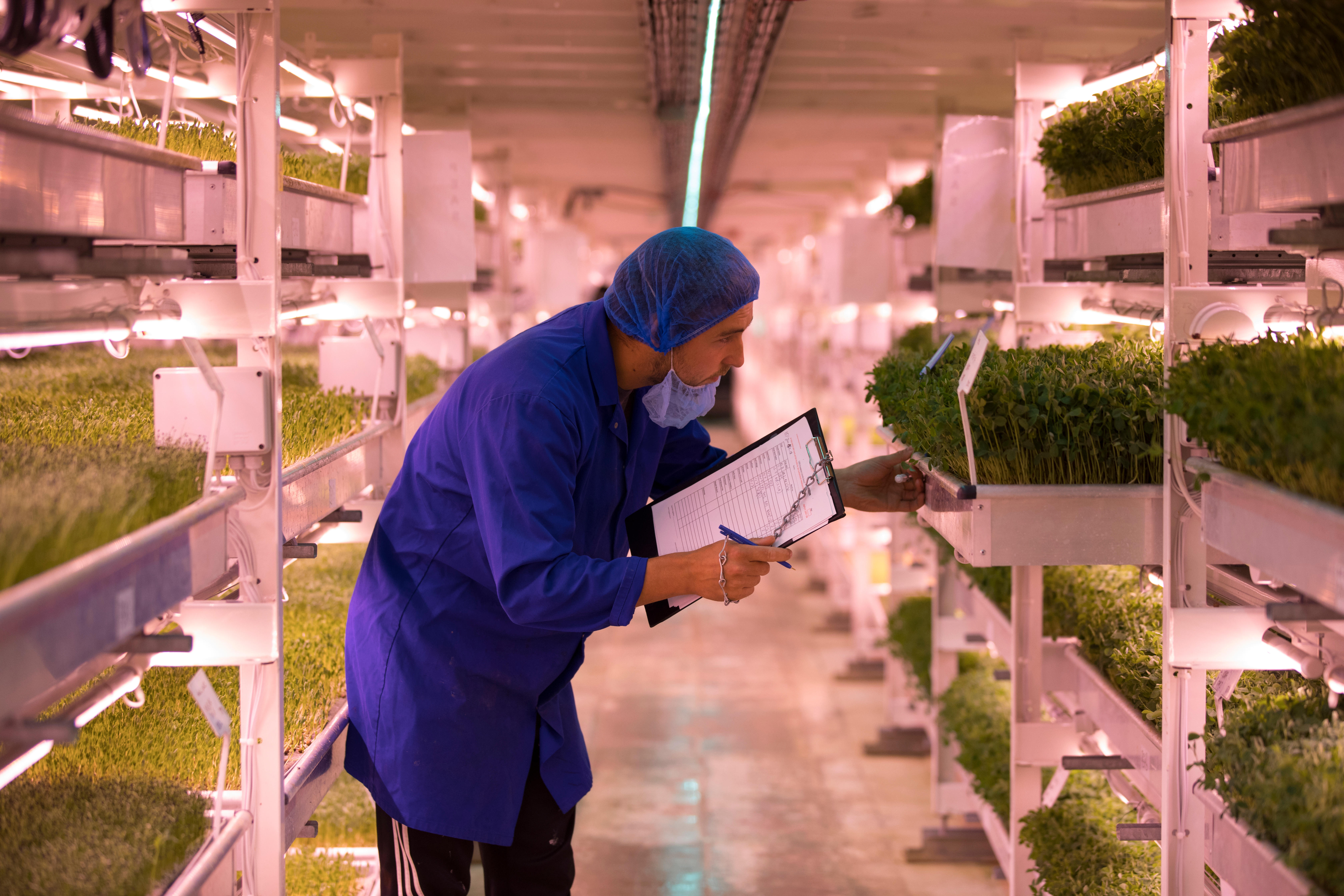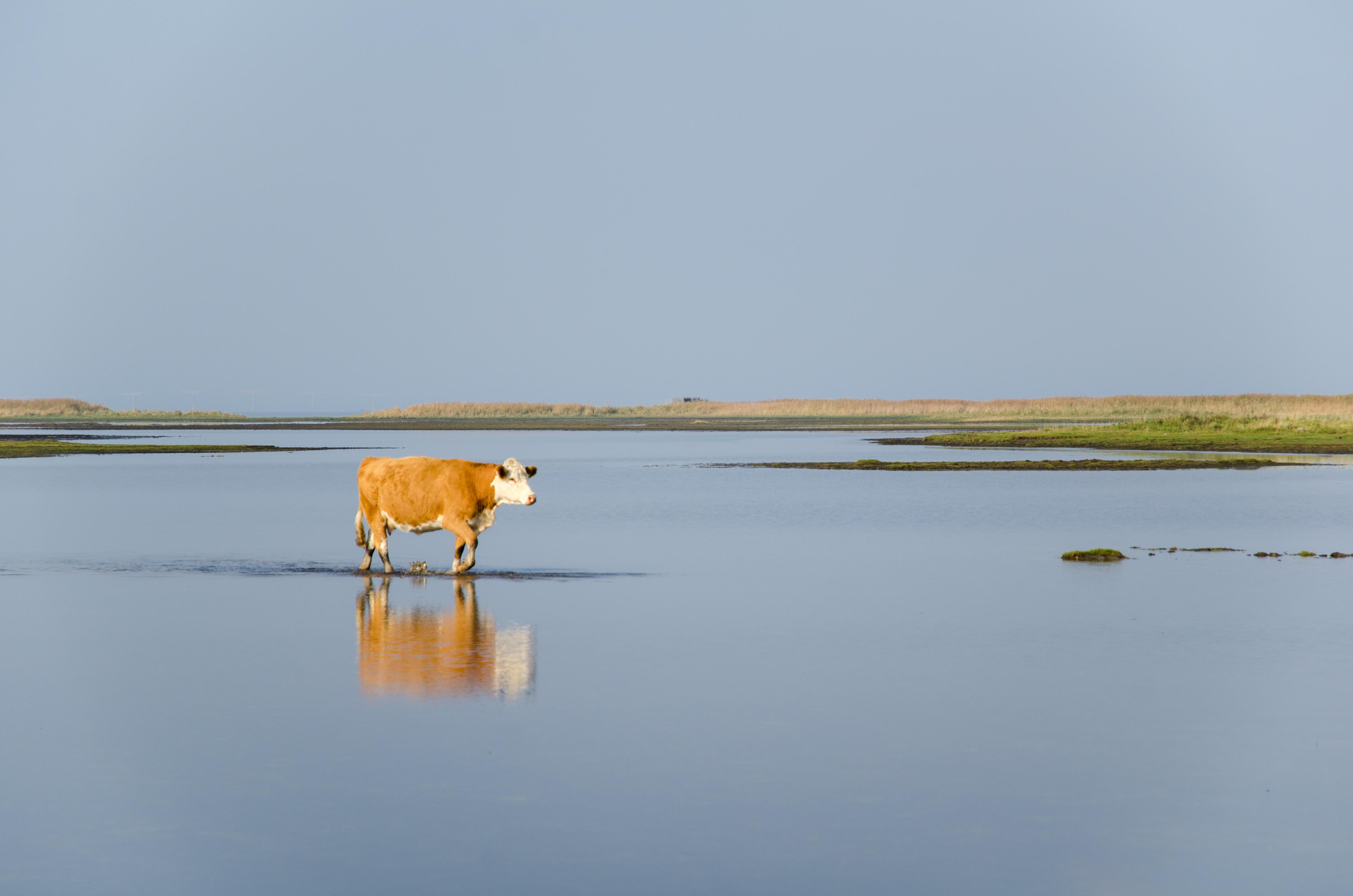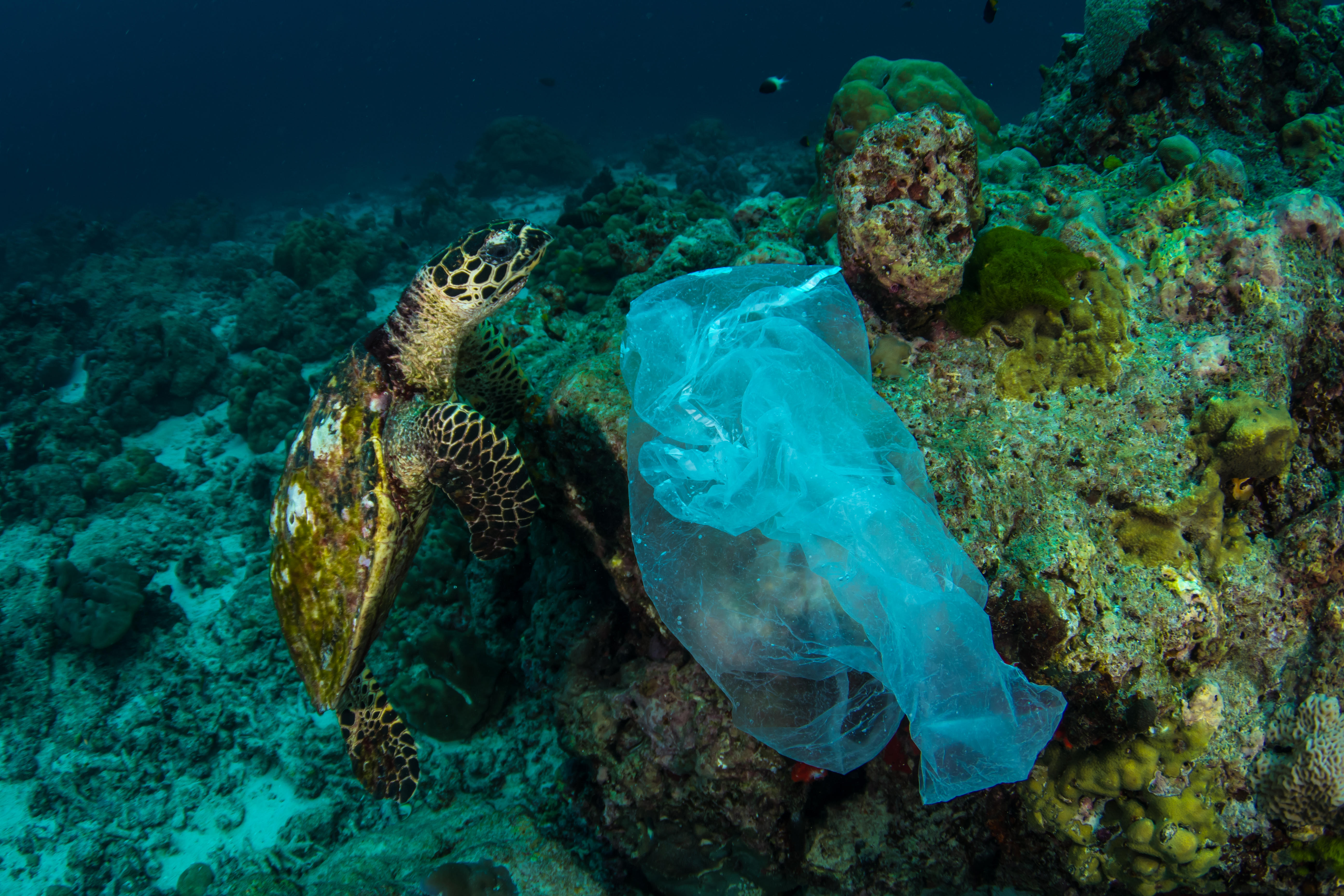Growing Underground: London air raid shelter provides unlikely setting for salad farm
The farm’s urban location provides an ideal base to distribute food to London-based consumers.

Earlier this week Country Life reported on Rotterdam’s remarkable floating dairy; now it seems that pioneering farms are also cropping up in Britain.
Going Underground is located 33m below street level and based in a disused World War II air raid shelter in Clapham.
The urban farm produces salad in a controlled environment, which is said to provide ideal conditions for micro greens, baby leaves and herbs.
Its central London location is convenient to distribute the vegetables to hotels, restaurants and shops, reducing the food miles for businesses and consumers. The farm also boasts using 77% less water than conventional agricultural methods.
Richard Ballard, one of Growing Underground's founders, said the next step would be growing cucumbers and soft fruits, such as strawberries.
This isn't to say that our old farming methods are falling out of style; Mr Ballard emphasised that there are some crops which are best suited to traditional methods of farming.
‘I don't think we are going to be seeing controlled environments for growing potatoes and root vegetables in the UK any time soon, it's much more efficient to grow that outside,’ he told the BBC.
Exquisite houses, the beauty of Nature, and how to get the most from your life, straight to your inbox.
Growing Underground currently employs 25 people who harvest the crops by hand, but as the farm expands it will move to a more automated harvesting system.
Crops are grown year-round in a pesticide-free environment, unaffected by the weather and seasonal changes. A spigot supplies nutrients and water to the roots of the plants and artificial light and warmth is provided by LED lighting.
The site is powered with renewable energy.
Mr Ballard said the venture was ‘very close’ to breaking even in its current set up, but would benefit from the economies of scale as it expands.
He applauded the inventive farming methods in different environments.
‘We're definitely seeing a growth in this industry,’ he added.
As news of the Clapham farm spreads, an unusual farm in the Netherlands has also been hitting the headlines.
Dutch property company, Beladon, has opened a floating farm in Rotterdam's busy city port. The man-made island houses 32 dairy cows who are milked by robots.
While the countryside may seem a more logical place to run a dairy herd, the farm promises to reduce transport pollution as it is situated within the highly-populated area that requires its produce.
The experimental farm is hoped to provide an alternative way to produce sustainable food.
If the Rotterdam pilot is a success, the company plans to launch a floating chicken farm and greenhouses to produce fruit and vegetables.

Credit: Alamy Stock Photo
Making waves: Could floating dairy in Europe's busiest port pave the way for future farming?
Cows enjoy beer-infused hay on the world's first offshore dairy farm in the Netherlands.

Credit: Alamy
Country Life Today: Plastic bag sales plummet by 90% thanks to Blue Planet effect and seagulls are up to no good in an Exeter pub
Our news round-up features a 90% drop in the sale of plastic bags, Prince Charles's new guide to village life